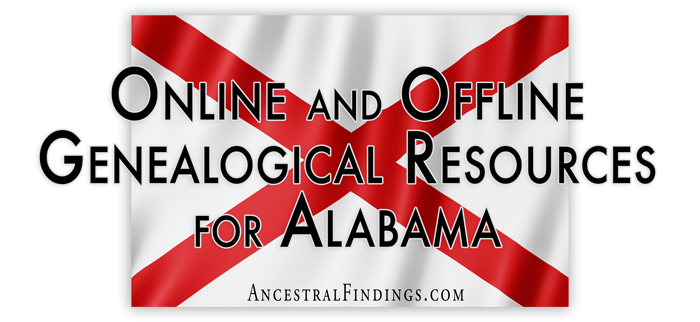If you have been in the genealogy world for a while, especially if you have been sharing your work online with others, you may become interested in writing a genealogy blog. It is an excellent way to put all your research and notes in one place where you can refer all those cousins you’re meeting, rather than writing the same thing out over and over again for them. You can also use your genealogy blog as a place to turn your research into stories, share memories of your own past, preserve family stories, traditions, and recipes from the generations you know personally, and even to preserve photos. After all, everything on the internet lives on in electronic form forever.
If you are going to get into writing a genealogy blog, that’s a fantastic idea. You want to be sure it is interesting for anyone who comes to visit it, though. Repeat visitors and traffic from word-of-mouth and internet searches are going to make or break the popularity of your blog. It should have something interesting for everyone, even people not directly connected with your family. Here are some tips on writing a top-notch genealogy blog that people will love.
-
Categorize, Categorize, Categorize
Categories may not mean much on other blogs, but they are super important on genealogy blogs. You need to use whatever blog software you are writing on to create categories. This way, readers can easily look up the topics that interest them most. You might have categories for such things as surnames, centuries, locations, the history of certain locations, traditions, personal stories, recipes, photographs, and more. You will think of new, natural categories based on what you are writing as your blog blooms.
-
Link to Other Genealogy Blogs
Put links in your articles and/or your blog’s sidebar to other genealogy blogs that are relevant to what you are writing, or that are interesting to you. This is not only helpful for your readers, it also increases the chance that those blogs will link back to you in turn, which can bring your own blog more traffic. You can put a blogroll of blogs you like best in your sidebar and may find yourself in the blogroll of other blogs after a while.
-
Participate in Genealogy Blog Themes
The world of genealogy blogs is unique. It is more close-knit than most other blogging communities, and it has its own unique themes that bloggers in the field participate in, either all the time or sometimes. The themes in the genealogy blog world tend to go by days, such as Black Sheep Sunday, Way Back Wednesday, and more. Look around at other genealogy blogs to see what they are writing about on certain days, and come up with your own posts on those topics. You don’t have to do it every time, but participating every now and then will get you more links from other blogs, and more traffic.
-
Use Photos
While a photo might not fit into every post, try to use them as often as you can. People like visuals, and having them there will keep readers more interested. The most obvious choice is your own family photos, but if you don’t want to make that public, you can use creative commons photos and graphics that relate to what you’re writing or location shots of places where your ancestors lived (either one you took or ones that are in the public domain.
-
Cite Your Sources
If you use information from someone else’s genealogy blog or a genealogy-related website, be sure to give them credit and a link back. The world of genealogy blogs is small and other bloggers tend to know each other. If you use someone else’s material and don’t give them the proper credit and link, you will get a bad reputation as a blogger, and other bloggers won’t respect you or link back to you. The same thing goes if you cite information out of a printed book. Chances are high that someone out there has read it. Cite it in your blog post, or you will likely get a comment or email calling you out on it. Besides, citing sources is professional, and will look good if you are going for a book publishing deal out of the blog. – Learn More
-
Get Permission from the Blog Owner if You are Using a Large Chunk of Their Content
You can get by with citing and linking your source if you are just using a few lines. It kind of goes without saying that if you are using more than a paragraph, get the blog owner’s permission before posting it on your own blog.
-
Make it Entertaining
Just like you want your family history to be more than just names, dates, and places on a family tree, and to have stories of your ancestors’ lives, you want your blog to be more than just facts. To keep readers, you need to make your posts entertaining. Write them as if you were writing for a beginning genealogy audience and wanted to get them interested in pursuing it themselves. Be educational, yes, but make your posts fun and fascinating at the same time, and your readers will come back for more.
-
Include Video
This is especially important if you are going to be traveling to do genealogy in the field, or if you want to become a well-known personality in the genealogy world. Including videos of your travels and discoveries, or just of you talking on camera about things you’ve learned or that interest you will make your blog more popular, retain reader interest, and make you a recognizable person in the field.
-
Respond to Comments Quickly
You don’t have to enable comments on your blog, but it is a good way to increase its popularity. If you enable comments, be sure to respond courteously right away to anything that is not spam. Don’t be one of those blog owners that take months or years to get back to someone. Do it right away, and your readers will be more engaged with you.
-
Offer Something Your Readers Can Take With Them
This is an excellent idea if you plan to publish a book or get articles published in genealogical magazines. Write a little ebook about genealogy, a certain family, a certain location, or a period in history that interests you, and offer it for free as a download on your website to your readers. They will remember you when you start publishing offline and will be more likely to buy your writing. Plus, it will give your blog more value to your readers, and they will come back, and recommend it to others.






